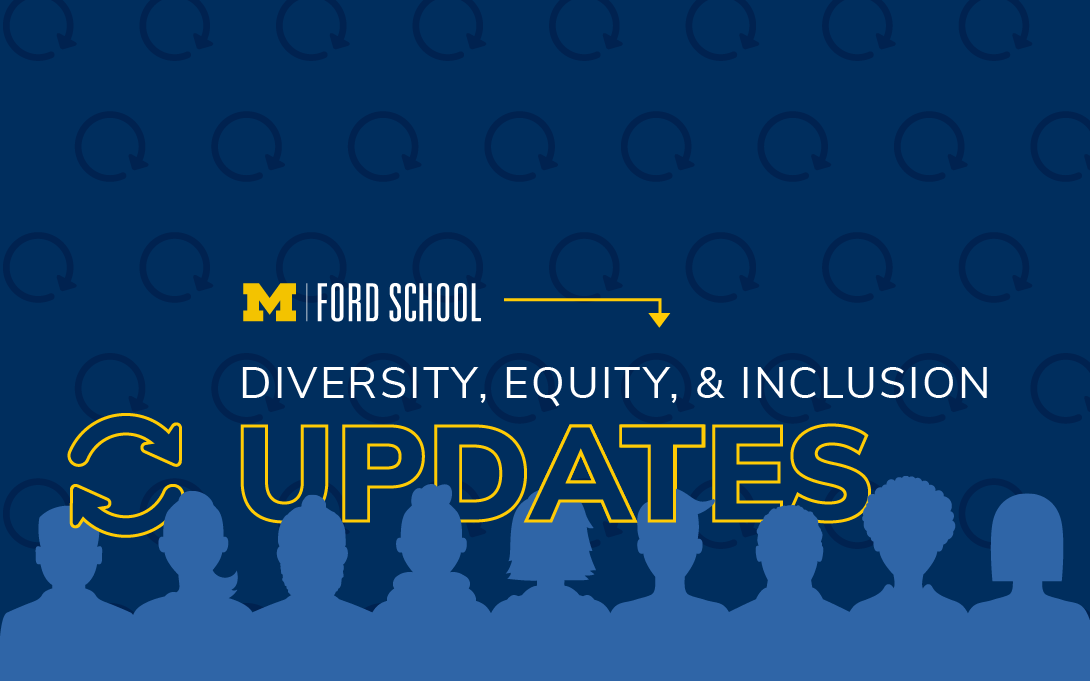
Updates regarding faculty, staff, and student DEI-related activity at the Ford School
Diversifying what and how we teach
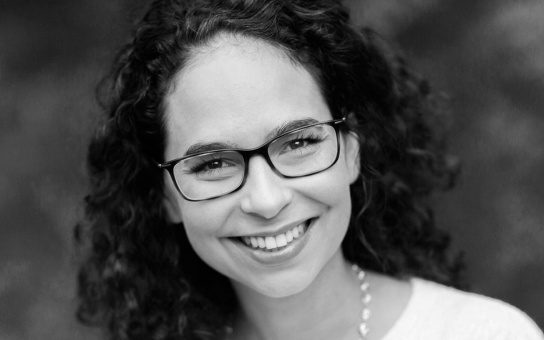
Morela Hernandez adds leadership and diversity expertise to Ford School faculty. The University of Michigan Regents approved the appointment of Morela Hernandez as professor of public policy with tenure at the Ford School. Hernandez is an organizational psychologist doing important work at the intersection of leadership and diversity. To read more click here.
As Women Drop Out of the Labor Market, Moms Call for More Aid. In what some economists have deemed the first female recession, calls for structural changes to support them are growing louder. During the Aspen Institute’s RE$ET Conference, Betsey Stevenson, shares her thoughts. Read the full article here.
The Graham Sustainability Institute’s Carbon Neutrality Acceleration Program (CNAP) announced a series of projects chosen for an initial round of funding, each with dramatic potential to help reduce net carbon emissions. Kaitlin Raimi was among seven 1-2 year projects chosen from among 37 proposed projects involving 105 U-M faculty and researchers. The projects selected address energy storage, carbon capture and sequestration, public opinion, behavior and equity. Read the full article here.
Promoting an equitable and inclusive climate
Professional development of faculty and staff is an important dimension of Ford School programming that advances our values of inclusion and equity. During the month of February faculty and staff heard from members of our community about the importance of this work.
- During the February 16 faculty meeting faculty heard from Celeste Watkins-Hayes on strategies for inclusive student advising.
- On February 23, Ford School staff participated in the first of a two part professional development series, Leveling Up to Challenge Institutional Inequity. Led by co-discussants Christie Baer, and Stephanie Sanders, staff heard about the levels of racism as a framework to understand race-associated differences.
- Funding is still available to student organizations whose programs and initiatives promote diversity, equity, and inclusion (DEI) related values. The purpose of the funding is to encourage student-led programming that advance objectives in the Ford School Diversity Plan. For more information and to access the DEI Funding Request for Student Organizations click here.
- During the February 19 Diversity, Equity, and Inclusion (DEI) Coalition meeting, members received implementation plan updates and discussed how this might translate to the next iteration of strategic diversity priorities.
The DEI Diversity Officer provided updates on collaborative efforts with Ford School Communications and Outreach to improve how we communicate the school’s DEI priorities and accomplishments. You can now view these updates here.
During this meeting, the Coalition heard from Sharanya Pai, SAC DEI Chair, who provided updates from the November anti-prejudice taskforce forum. At that forum, Pai facilitated an informal discussion that allowed for students to share issues they face, amplifying their voices. Pai hopes to continue to guide open “dinner-table” conversations with students and then partner with Ford School leadership in a collective effort to address trending issues and concerns.
The DEI Coalition discussed suggestions to address anti-racism and anti-blackness put forward by an alumni group, Ford School Alumni for Justice. The DEI Coalition, Ford School leadership, and others have offered ideas to this group regarding shared priorities.
Implementation of the Ford School’s DEI 5-year Strategic Plan (2016 -2021) ends in July 2021. The next Coalition meeting is on March 19.
Upcoming events
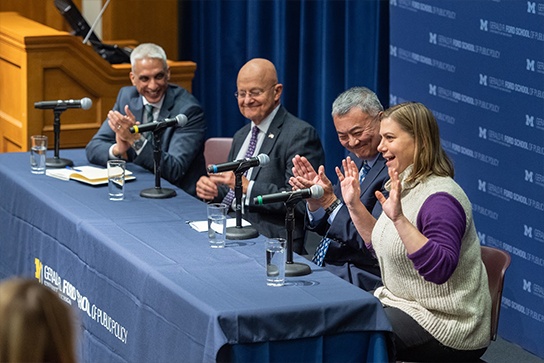
Women’s History Month had its origins as a national celebration in 1981 when Congress passed Pub. L. 97-28 which authorized and requested the President to proclaim the week beginning March 7, 1982 as “Women’s History Week.” Throughout the next five years, Congress continued to pass joint resolutions designating a week in March as “Women’s History Week.” In 1987 after being petitioned by the National Women’s History Project, Congress passed Pub. L. 100-9 which designated the month of March 1987 as “Women’s History Month.” These proclamations celebrate the contributions women have made to the United States and recognize the specific achievements women have made over the course of American history in a variety of fields. The Law Library of Congress has compiled guides to commemorative observations, including a comprehensive inventory of the Public Laws, Presidential Proclamations and congressional resolutions related to Women’s History Month. This month also includes International Women’s Day. March 8 is set aside, as a global day to celebrate the social, economic, cultural and political achievements of women.
To view a showcase of videos that spotlight women who’ve impacted our history visit U-M’s Organizational Learning website here.
Surviving the White Gaze
March 3, 4:00 - 5:00 PM EST
Join us for a discussion with Rebecca Carroll on her new book, "Surviving the White Gaze." Intimate and illuminating, Surviving the White Gaze is a timely examination of racism and racial identity in America today, and an extraordinarily moving portrait of resilience. Beth Chimera, writing instructor at the Ford School Writing Center, will moderate the discussion. For more information visit here.
The Environmental Justice and Systemic Racism Speaker Series
March 4, 12:00 - 1:00 PM EST
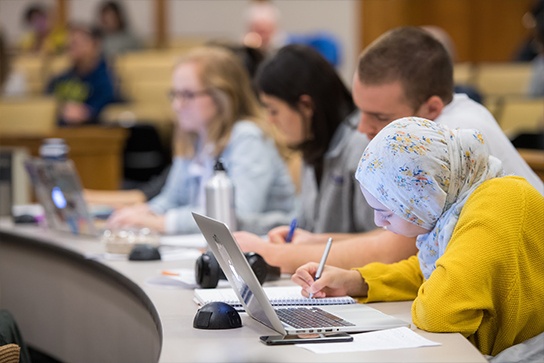
The U.S. Environmental Protection Agency (EPA) is launching the Environmental Justice (EJ) and Systemic Racism Speaker Series by featuring The Mapping Inequality Project on March 4, 2021 at 12:00 – 1:00 pm EST. This unique collaboration created a foundational resource for unprecedented research, education, organizing, and policy advocacy on redlining and current environmental challenges. Project co-founders Robert Nelson, University of Richmond, and LaDale Winling, Virginia Tech, will discuss the genesis and impact of this project. REGISTER NOW! For more information, contact Charles Lee or Sabrina Johnson.
The movement for economic equity in Detroit
March 4, 12:00 - 1:30 PM EST
From the fight for a fair wage, to business closures during a pandemic, to a historic lack of job opportunities for Black individuals, race-based mechanisms of economic and social suppression have been systemically and strategically created in Detroit. Presented by the School of Social Work, this virtual discussion focuses on the work of Detroit activists and leaders who have dedicated their lives to creating a more economically just and mobile city. To learn more about this event and to RSVP visit here.
Michigan Women of Color Task Force 39th Annual Career Conference
March 4-5, 8:30 - 1:30 PM EST
All U-M staff, faculty, students, and the public, regardless of gender or ethnicity, are invited to register to attend this inclusive professional development event. The conference is free this year; however, pre-registration is required to attend the workshops and keynote sessions. The closing keynote program will feature a legislative panel comprised of US State representatives: the Honorable Debbie Dingell, MI-12, and the Honorable Rashida Tlaib. To register and for more conference information, including the 2-day event schedule, speaker details, and workshop descriptions, visit here.
The Poverty Narrative: Confronting Inequity
March 5, All day (sessions begin at 9:00 AM, 10:30 AM, 12:00 PM, 1:30 PM EST)
Hosted by Poverty Solutions, The Poverty Narrative: Confronting Inequity is a virtual event dedicated to promoting a deeper understanding of the connections between race, structural racism, and poverty in the U.S. The COVID-19 pandemic, Black Lives Matter movement, and election season of 2020 highlighted the urgent need to confront the policies and practices that perpetuate inequity. To RSVP and to learn more visit here.
A conversation about sustainability, social justice, and public policy
March 8, 4:00 - 5:00 PM EST
Please join STPP for a conversation about sustainability, social justice, and public policy. Speakers include Darshan Karwat, assistant professor, School for the Future of Innovation in Society, Arizona State University and Tony Reames, assistant professor, School of Environment & Sustainability. For more information on the lecture, visit here.
34th Annual Minority Health Equity Conference
March 12, 1:00 - 5:00 PM EST; March 13, 11:00 - 1:45 PM EST
The theme for this year’s conference is Disrupt to Reconstruct: Mass Incarceration to Prison Abolition. Attendees will learn why prison abolition is necessary for achieving health equity, how incarceration exacerbates disability, and how to bring abolitionist practice to your public health work. To RSVP and to learn more visit here.
Dr. Tressie McMillan Cottom on modern discourse
March 17, 4:00 - 5:00 PM EDT
Co-hosted by the Ford School of Public Policy and Education Policy Initiative, Professor Celeste Watkins-Hayes will moderate a conversation with Tressie McMillan Cottom on modern discourse. They will discuss topics in Dr. Cottom's new book, Thick, including race, gender, inequality, higher education access, technology, culture, and more. Click here to register for the talk and read more.
Poverty doesn't pause: Housing insecurity during a pandemic
March 25, 12:00 - 1:30 PM EDT
Homelessness and housing insecurity is an epidemic in our country, especially in communities of color. During a pandemic, these individuals end up being our most vulnerable. Join the School of Social Work for this virtual discussion featuring panelists working on the front lines of Detroit’s housing insecurity. For more crisis, who will discuss how the pandemic has exacerbated housing issues. To learn more about this event and to RSVP visit here.
For more DEI-related campus-wide events visit here.
Learning and development
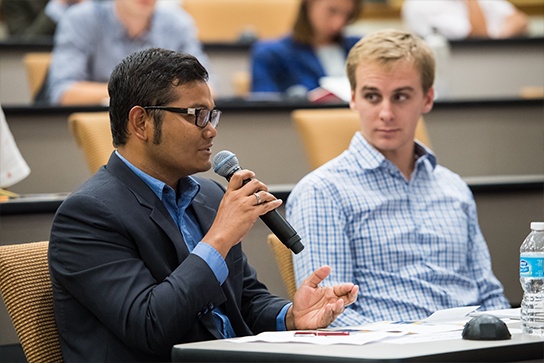
For the past two years, the University of Michigan has been the #1 Institution, out of 240+ institutions across the country, in the number of total minutes logged for writing during the NCFDD 14-Day Writing Challenges. Faculty interested in joining the challenge can register for the upcoming 14-Day Writing Challenge (March 22-April 4). Registration closes on March 17. In order to access the many NCFDD resources, you will need to activate your FREE membership through our system-wide account. You can join online here by indicating which U-M campus you are a member: www.facultydiversity.org/join.